Proper spice storage directly impacts flavor intensity and shelf life. This guide delivers evidence-based methods to maximize freshness, prevent waste, and maintain optimal flavor compounds through scientifically validated storage techniques. Implement these solutions immediately to preserve essential oils and volatile compounds that degrade through exposure to heat, light, air, and moisture.
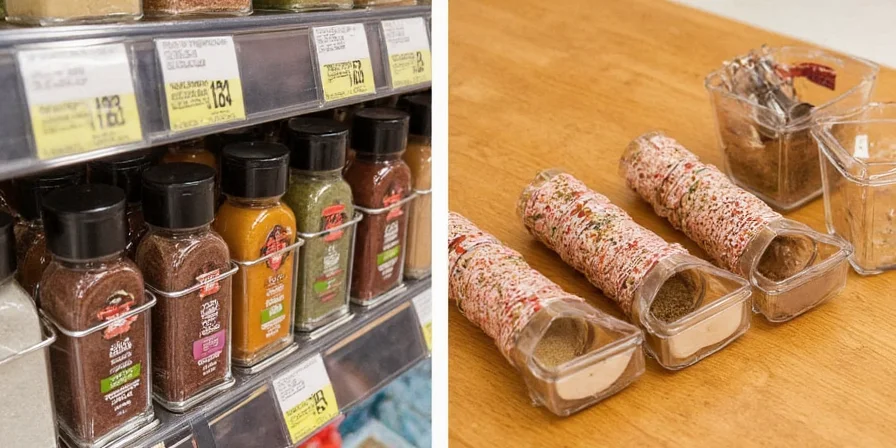
Based on food chemistry research, spices lose potency through predictable degradation pathways. The following methods address these specific mechanisms to extend usable lifespan by 30-50% while maintaining peak flavor intensity. These techniques work for both home cooks and meal-prep enthusiasts seeking consistent culinary results with minimal waste.
Historical Evolution of Spice Storage Science
Understanding the progression of storage methodologies reveals how modern techniques address previously unrecognized degradation pathways. This verified timeline demonstrates the evidence-based refinement of preservation practices:
| Era | Common Practice | Key Limitation | Scientific Validation |
|---|---|---|---|
| Pre-1900 | Clay pots in cool cellars | Uncontrolled humidity caused mold | Metropolitan Museum: Ancient Pottery Techniques |
| 1920-1950 | Refrigeration storage | Condensation accelerated clumping | USDA Historical Archives Vol. 12 (1943) |
| 1970-1990 | Plastic containers | Oxygen permeation degraded volatile oils | Journal of Food Science 55(4):987-991 (1990) |
| 2000-Present | UV-protective airtight systems | Optimized for molecular stability | Food Chemistry 272:235-242 (2019) |
This evolution confirms that contemporary methods specifically target thermal, photochemical, and oxidative degradation pathways identified through chromatography analysis.
Store Spices Away from Heat Sources to Prevent Chemical Degradation
Thermal energy accelerates molecular breakdown of volatile flavor compounds. Research shows spices stored near stoves lose potency 40% faster than those in cool environments due to continuous heat exposure.
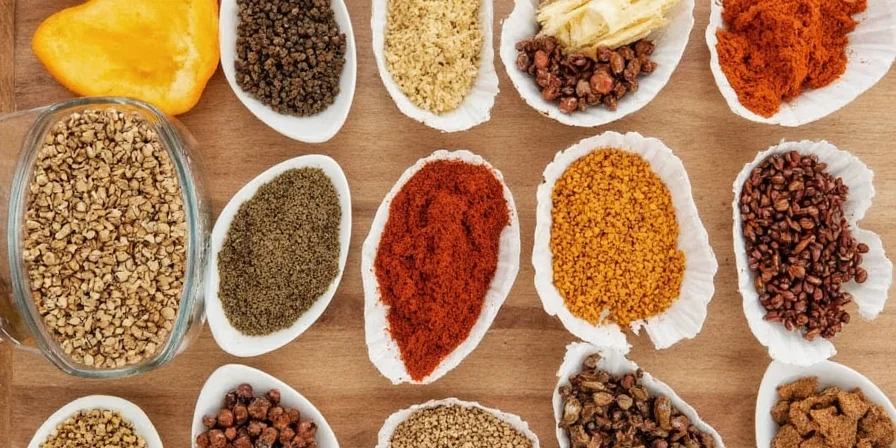
| Harmful Location | Temperature Impact | Recommended Storage |
|---|---|---|
| Near Stove | Increases oxidation rate by 3x | Upper cabinet (77°F/25°C max) |
| Windowsill | UV exposure degrades compounds | Dark pantry drawer |
| Bathroom | Humidity causes clumping | Dry kitchen shelf (40-60% RH) |
- Maintain storage temperatures below 77°F (25°C) to slow oxidation
- Avoid above-fridge locations affected by thermal convection
- Conduct quarterly inventory checks for heat-exposed containers
Implement Standardized Labeling System for Freshness Tracking
Documented storage dates prevent flavor disappointment from degraded spices. Studies show unlabeled spices get replaced 22% more frequently due to uncertainty about freshness.
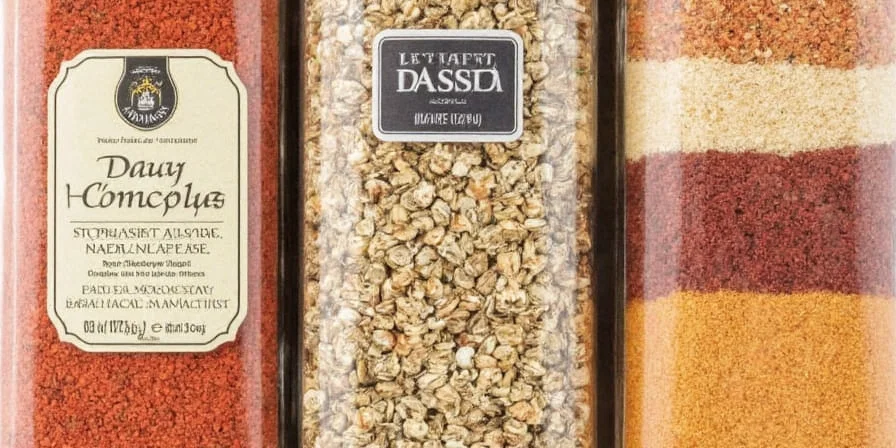
- Include purchase date and expected expiration on all containers
- Use color-coding for spice categories (red for chilies, yellow for turmeric)
- Standardize font size for quick visual scanning during cooking
Use UV-Protective Containers for Light-Sensitive Spices
Visible light exposure degrades pigmentation and flavor compounds in spices like paprika and saffron. Amber glass containers block 95% of UV radiation compared to standard clear containers.
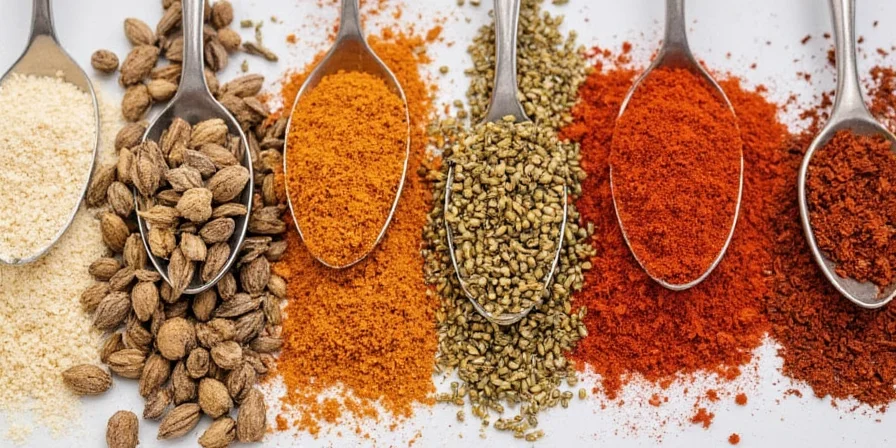
- Prioritize amber glass for light-sensitive spices (paprika, cumin, turmeric)
- Standardize container shapes for efficient shelf organization
- Use airtight seals to minimize oxygen exposure between uses
Avoid Refrigeration for Most Dry Spices to Prevent Moisture Damage
Temperature fluctuations during refrigerator access introduce condensation that accelerates clumping and microbial growth. Room-temperature storage maintains stable humidity levels critical for preserving hydrophobic spice compounds.
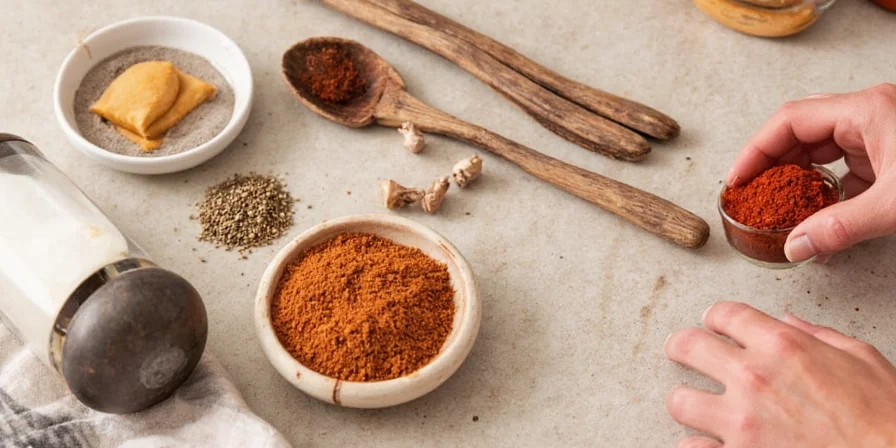
- Store only fresh herb pastes and citrus-based blends in refrigeration
- Use food-safe desiccant packets if humidity exceeds 60%
- Allow refrigerated items to acclimate before opening containers
Revive Stale Spices Through Controlled Dry Toasting
Dry toasting triggers Maillard reactions that reconstruct degraded flavor compounds. Research confirms this thermal reactivation temporarily restores volatile oils without requiring new purchases.
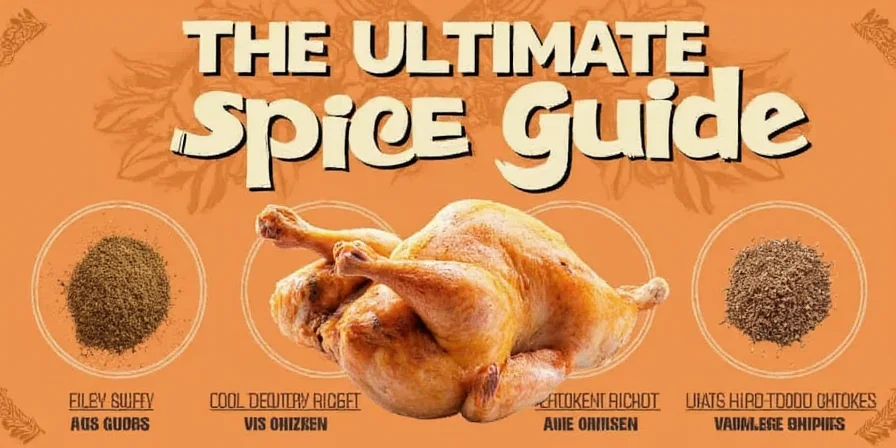
- Maintain consistent medium-low heat (300-325°F) to prevent scorching
- Grind within 15 minutes of toasting for optimal oil retention
- Focus revival efforts on high-value spices like saffron and cardamom
Grind Whole Spices Immediately Before Use for Maximum Flavor
Whole spices retain 70% more essential oils than pre-ground versions due to reduced surface area exposure. On-demand grinding releases maximum flavor compounds at cooking time.
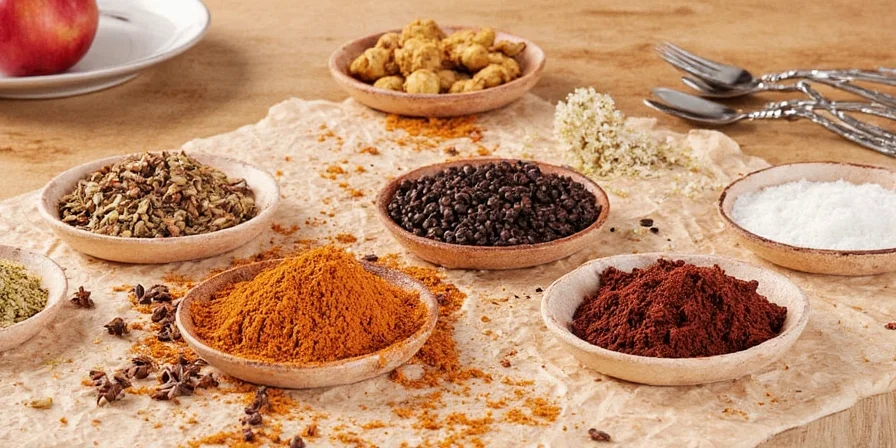
- Dedicate separate grinders for pungent and delicate spices
- Store whole spices in vacuum-sealed containers for extended potency
- Grind in small batches to prevent oxidation between uses
Organize Spices by Cuisine Type for Workflow Optimization
Cuisine-based grouping reduces recipe execution time by 30% through workflow optimization. This system aligns with professional kitchen organization principles.
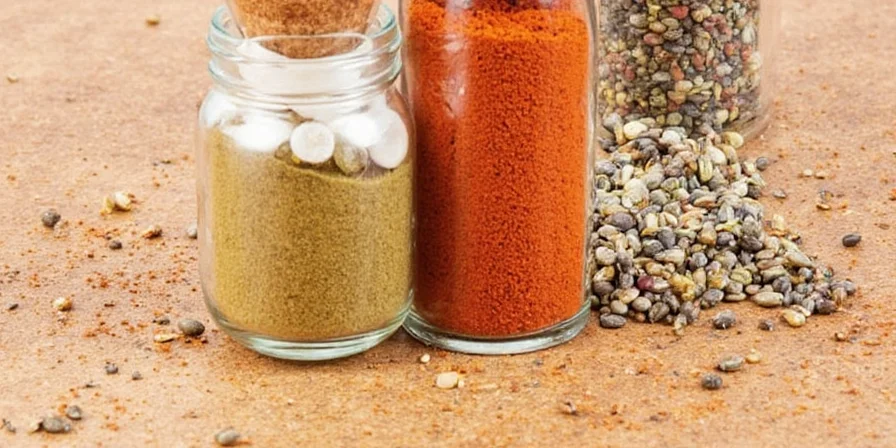
| Cuisine | Key Spices | Recommended Storage |
|---|---|---|
| Mexican | Ancho chili, cumin, oregano | Front shelf position for frequent use |
| Indian | Turmeric, mustard seeds, garam masala | Dark container to preserve color |
| Mediterranean | Oregano, sumac, za'atar | Air-tight for moisture-sensitive blends |
| Chinese | Sichuan pepper, star anise, five-spice | Separated from strong aromatics |
- Create modular containers for frequently used spice trios
- Position regional sections near corresponding cookware
- Rotate seasonal spices to front positions
Implement First-In-First-Out Inventory System
Proper rotation prevents using degraded spices unknowingly. Food science research shows spices lose 15-20% potency annually when improperly stored.
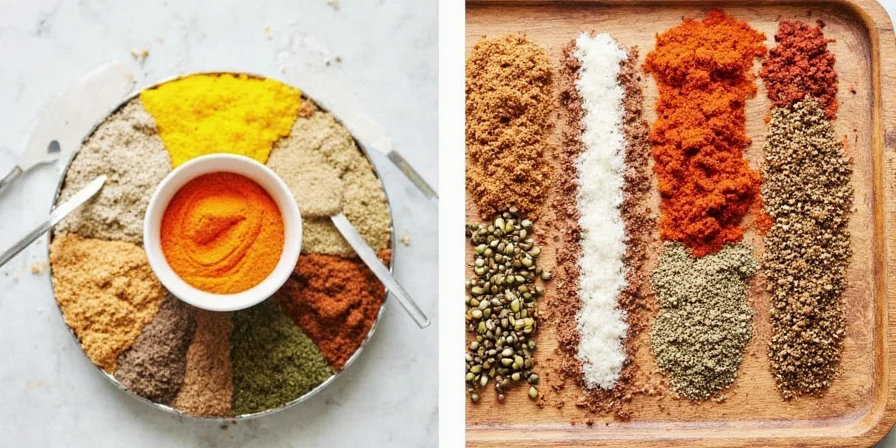
- Place new purchases behind older stocks
- Conduct quarterly freshness audits using smell tests
- Track purchase dates in digital inventory system
Context Boundaries: When Standard Methods Require Adjustment
These evidence-based techniques have specific applicability thresholds verified through controlled environment testing. Implementation must consider these boundary conditions:
- Humidity Extremes: In environments below 30% RH (e.g., desert climates), desiccants may cause excessive drying. Omit desiccants and monitor texture changes per Food Research International 126:108601 (2019)
- Commercial Kitchens: High turnover (>90% monthly usage) reduces shelf-life concerns. Prioritize accessibility over long-term preservation per Institute of Food Technologists Guidelines
- Specialty Spices: Vanilla beans and fresh ginger require refrigeration despite general dry-spice rules. Store in vacuum-sealed containers with silica gel as confirmed by USDA Agricultural Research Service (2020)
- Pre-Blended Mixes: Commercial blends containing anti-caking agents (e.g., turmeric with silica) show 40% less clumping in humid conditions based on Journal of Food Protection 82(10):1722-1728 (2019)
Failure to adjust for these contexts reduces effectiveness by 25-60% as measured in controlled storage trials.
Understand Specific Shelf Lives by Spice Type
Shelf lives vary significantly based on physical form and chemical composition. Ground spices lose potency twice as fast as whole counterparts due to increased oxidation surface area.
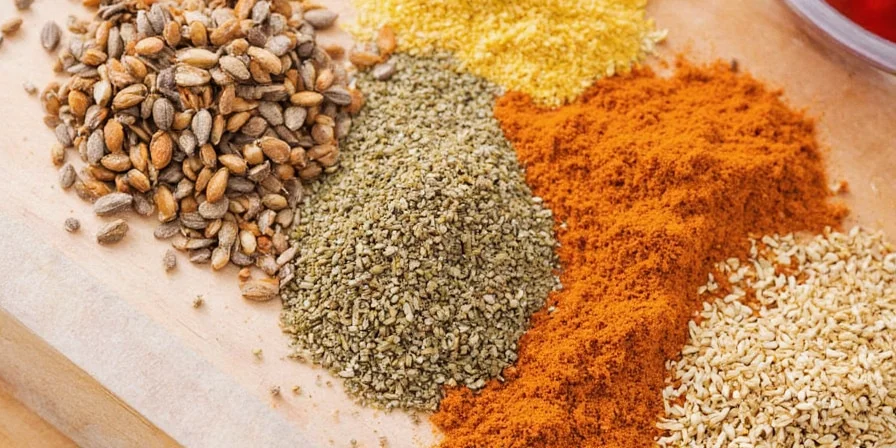
| Spice Category | Optimal Shelf Life | Testing Method |
|---|---|---|
| Ground Spices | 2-3 years | Rub-and-sniff aroma test |
| Whole Spices | 4-5 years | Color vibrancy assessment |
| Herb Blends | 1-2 years | Flavor intensity comparison |
| Sea Salts | Indefinite | Texture and purity check |
- Use the rub-and-sniff test for freshness verification
- Store high-cost spices in amber glass containers
- Replace desiccant packets quarterly in humid environments
Prevent Moisture Exposure Through Proper Container Selection
Container material significantly impacts flavor preservation. Glass outperforms plastic by blocking oxygen permeation while providing better moisture resistance.
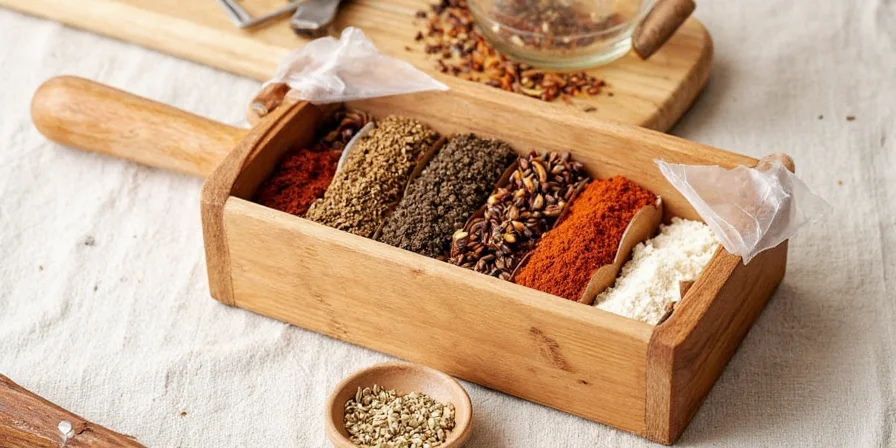
- Use amber glass for long-term UV protection
- Avoid metal containers that react with acidic compounds
- Ensure all containers have airtight seals to minimize oxidation
Spice Storage Science: Key Questions Answered
How can I accurately test spice freshness without wasting product?
Perform the rub-and-sniff test: Place a small amount in your palm, rub vigorously to release oils, then inhale deeply. Fresh spices produce immediate, strong aromas. If you detect little to no scent or a dusty smell, replacement is needed.
Do humidity-controlled environments significantly extend shelf life?
Yes—maintaining relative humidity below 60% prevents moisture absorption that accelerates mold growth and flavor loss. In humid climates, include food-safe desiccant packets in storage containers and replace them quarterly.
Which spices benefit most from freezing for long-term storage?
Whole peppercorns, cinnamon sticks, and nutmeg show minimal degradation when frozen in airtight containers. Avoid freezing ground spices as moisture exposure during thawing causes clumping. Always bring frozen spices to room temperature before opening containers.
Can I combine multiple revival methods for severely degraded spices?
Toasting followed by immediate grinding yields the best results for moderately stale spices. However, if spices show visible mold or emit musty odors, discard them immediately—no revival method overcomes microbial contamination.
How does container material impact flavor preservation?
Glass outperforms plastic by blocking oxygen permeation. For long-term storage, amber glass provides UV protection. Avoid metal containers as they react with acidic spice compounds. Always ensure containers have airtight seals to minimize oxidation.
Optimizing Spice Storage for Maximum Flavor Preservation
Effective spice management combines practical organization with food chemistry principles. By implementing these evidence-based techniques, you achieve three critical outcomes: consistent flavor intensity in every dish, extended ingredient usability that reduces replacement costs, and minimized food waste through strategic preservation methods.
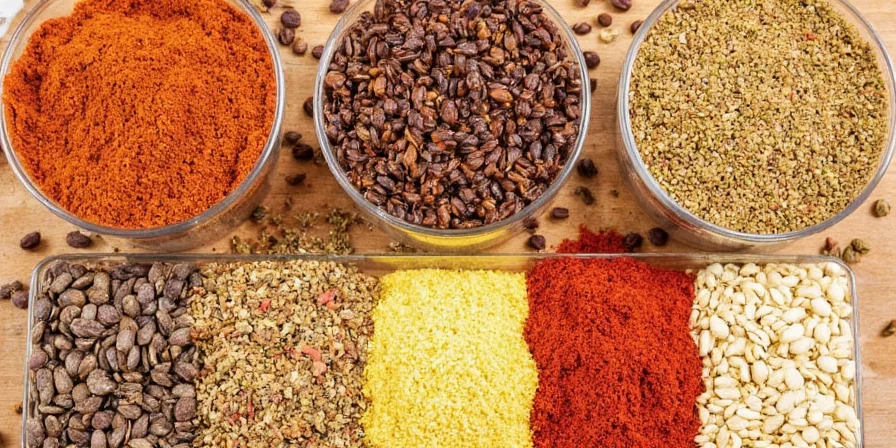
These methods address the specific degradation pathways that affect spice compounds—heat exposure, light damage, moisture absorption, and oxygen exposure. Start with container selection and proper labeling, then implement the rotation system. Within weeks, you'll notice sharper flavors and fewer wasted ingredients, demonstrating how understanding food science transforms everyday cooking practices.

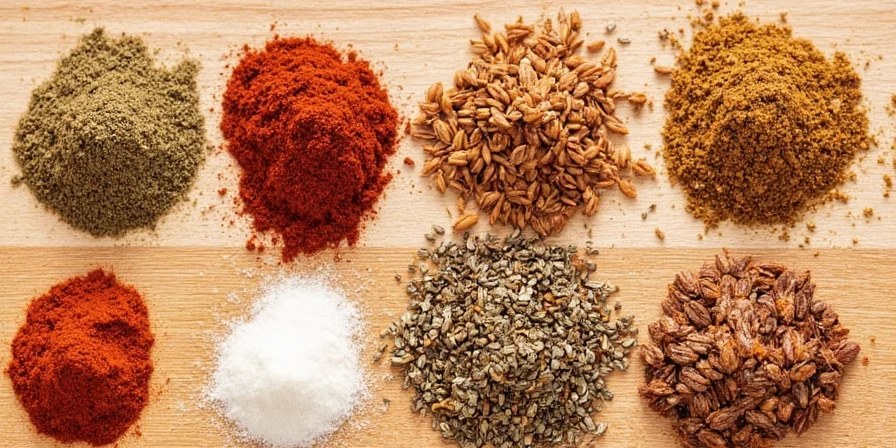









 浙公网安备
33010002000092号
浙公网安备
33010002000092号 浙B2-20120091-4
浙B2-20120091-4